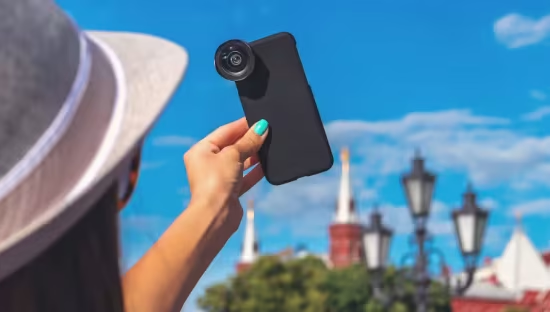
Exploring the Future of Hospitality Technology
In the dynamic world of hospitality technology, innovation is not just a buzzword; it’s a necessity for staying competitive and enhancing guest satisfaction. What is the Future of Hospitality Technology?
As we delve into the latest advancements, we focus on one critical issue plaguing the industry: the integration of technology to streamline operations while preserving the personal touch that defines hospitality.
The Challenge of Personalization in an Automated World
The hospitality sector faces a unique challenge: how to personalize guest experiences in an era where automation is increasingly prevalent. Guests today expect not only efficiency but also a tailored, human-centric service. The balance between technology and human interaction is delicate yet crucial for guest satisfaction.
Leveraging AI for Personalized Guest Experiences
Artificial Intelligence (AI) stands at the forefront of addressing this challenge. AI applications in hospitality are transforming how hotels and resorts personalize guest interactions:
- AI Chatbots: These are no longer just for handling basic inquiries. Advanced AI chatbots can now understand context, and sentiment, and even offer personalized recommendations for dining, activities, or room preferences based on past behavior. This technology ensures guests receive immediate, tailored responses at any time, enhancing their experience without diminishing the human element.
- Predictive Analytics: By analyzing data from previous stays, AI can predict guest preferences for room settings, dietary needs, or entertainment options, preparing personalized environments before guests even arrive. This foresight not only delights guests but also optimizes staff efficiency by reducing the need for repetitive adjustments post-check-in.
IoT: Enhancing the Guest Room Experience
The Internet of Things (IoT) is revolutionizing the guest room, making each stay more comfortable and customized:
- Smart Rooms: Here, guests can control room ambiance through mobile apps or voice commands. From adjusting lighting and temperature to setting up wake-up calls or playing favorite music, these smart rooms adapt to the guest’s lifestyle, offering a home-away-from-home feel with the convenience of high-tech control.
- Energy Management: IoT devices also play a significant role in sustainability, automatically adjusting room settings when unoccupied, thus reducing energy use and operational costs while maintaining guest comfort.
Streamlining Operations with Robotics and Automation
The integration of hospitality technology extends beyond guest interaction into the operational backbone of hotel management:
Automation in Daily Operations
- Robotic Service: Robots are increasingly used for mundane tasks like room service delivery, cleaning, and even as concierges in lobbies. This doesn’t replace staff but repurposes their roles towards more guest-centric activities, where human interaction is invaluable.
- Check-In/Out Kiosks: These have expedited processes, allowing guests to bypass long queues, and enhancing their experience from the moment they arrive. Such systems also reduce human error in data entry, ensuring a seamless check-in and check-out process.
Back-Office Efficiency
- Integrated Management Systems: From property management systems (PMS) to revenue management, integrated software solutions provide real-time data access, enabling better decision-making. This connectivity ensures all departments are on the same page, from housekeeping to the front desk, improving both service delivery and internal communication.
Security and Privacy in the Digital Age
With great technological power comes the responsibility to secure guest data:
- Advanced Cybersecurity: As hotels collect more personal data for personalization, robust cybersecurity measures are non-negotiable. Encryption, secure data storage, and regular security audits are standard practices to protect guest privacy.
- Biometric Security: Technologies like facial recognition for entry or keyless room access provide both convenience and security, reducing physical key management and enhancing guest safety without compromising privacy.
Training Staff for a Tech-Driven Environment
Success in hospitality technology isn’t just about tools but also about people:
- Tech Training Programs: Staff need to be adept at using new systems, ensuring they can leverage technology to enhance rather than hinder guest interactions. Comprehensive training programs are essential, covering everything from basic operations to handling tech-driven guest queries.
- Human-Centric Approach: Even with tech advancements, the human element remains central. Training focuses on using technology to foster better, not fewer, human interactions. Staff are taught to use tech tools as aids to their service rather than replacements.
Future Trends in Hospitality Technology
Looking forward, we see:
- Augmented Reality (AR) and Virtual Reality (VR): For immersive guest experiences, from virtual tours of hotel amenities to AR-enhanced dining experiences where guests can learn about the food’s origin or preparation.
- Voice Technology: Expanding beyond room controls to include voice-activated concierge services, providing guests with a novel way to explore hotel services or local attractions.
Conclusion
Embracing hospitality technology means not just adopting new tools but integrating them in a way that enhances guest experiences while maintaining the warmth and personal touch that define the industry. By solving the puzzle of personalization in an automated world, hotels can not only meet but exceed guest expectations, securing their place in a future where technology and humanity intertwine seamlessly.









